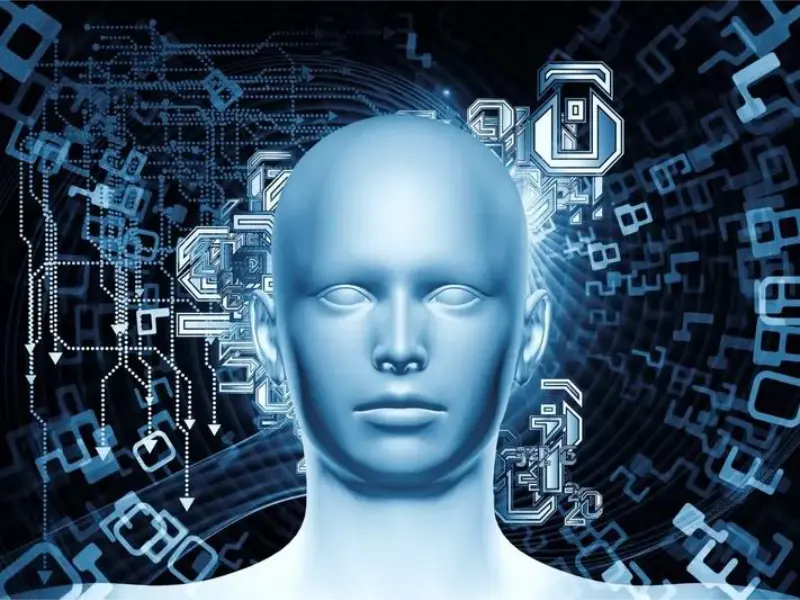- Cognitive systems employ various problem-solving techniques, including algorithmic, heuristic, optimisation, and search algorithms.
- These techniques help in problem formulation, analysis, solution generation, and decision-making.
- Cognitive systems convert real-world problems into computational models and extract relevant information for problem-solving.
The goal of the AI discipline of cognitive computing is to develop systems that both imitate and enhance human cognitive capacities. In order to mimic human cognitive processes and resolve challenging issues, it integrates technologies such as computer vision, natural language processing, machine learning, and data analytics. Natural language processing, machine learning, reasoning and decision-making, flexibility, context awareness, and problem-solving skills are some of the main features of cognitive computing. Applications for these systems include financial analysis, customer support, healthcare diagnostics, and tailored suggestions. Organisations may boost decision-making, automate jobs, and improve user experiences by utilising cognitive computing technology.
Natural Language Processing (NLP)
Natural Language Processing (NLP) is a subfield of AI that focuses on the interaction between computers and humans using natural language. It involves the analysis and understanding of human language to enable machines to process, interpret, and generate text or speech. NLP consists of components such as syntax, semantics, and pragmatics. Challenges in understanding natural language include ambiguity, context, and variability.
NLP techniques and algorithms include text preprocessing, named entity recognition, part-of-speech tagging, sentiment analysis, and language modeling. Applications of NLP in cognitive computing include chatbots and virtual assistants, information retrieval and search, text summarization and generation, language translation, and speech recognition and synthesis. By leveraging NLP algorithms and models, cognitive computing systems can bridge the gap between human communication and machine understanding, leading to more intuitive and effective interactions.
Machine learning in cognitive computing
Machine learning is a subset of AI that enables systems to learn from data and improve performance without explicit programming. It involves developing algorithms that can identify patterns, make predictions, and learn from experience. Machine learning algorithms form the foundation of cognitive computing systems, enabling them to adapt and improve over time. ML models are trained on data to recognise patterns, make decisions, and generate insights in cognitive tasks. There are three types of machine learning algorithms: supervised learning, unsupervised learning, and reinforcement learning.
Training models for cognitive computing involve data collection and preparation, model selection and training, and evaluation and validation. Applications of machine learning in cognitive computing include pattern recognition and anomaly detection, predictive analytics and forecasting, personalisation and recommendation systems, and image and speech recognition. By leveraging machine learning algorithms and models, cognitive computing systems can learn from data, recognise patterns, and generate valuable insights, supporting a wide range of applications in various industries.

Reasoning and decision-making
Reasoning and decision-making are crucial cognitive processes in cognitive computing, enabling systems to draw conclusions and make inferences based on available information and logical rules. They are essential for cognitive systems to solve complex problems, plan actions, and interact with users effectively. There are three types of reasoning: deductive, inductive, and abductive. Decision-making processes in cognitive computing include data-driven, rule-based, and adaptive.
Applications of reasoning and decision-making in cognitive computing include cognitive assistants and expert systems, autonomous systems and robots, healthcare diagnosis and treatment planning, and financial analysis and risk management. Cognitive assistants provide intelligent support and guidance, while expert systems use rule-based reasoning to emulate human expertise. Autonomous systems and robots rely on reasoning and decision-making algorithms to navigate environments, plan actions, and make real-time decisions.
Also read: Could AI replace cloud computing?
Cognitive computing systems also support healthcare professionals in diagnosing diseases, recommending treatments, and predicting patient outcomes. By incorporating reasoning and decision-making algorithms, cognitive computing systems can emulate human-like cognitive processes and provide valuable insights and recommendations across diverse domains and applications.
Adaptability and learning
Adaptability and learning are crucial aspects of cognitive systems, enabling them to adapt and evolve to changing environments. In cognitive computing, adaptive learning processes enable systems to continuously enhance their capabilities and adapt to dynamic conditions. There are different types of learning, including supervised, unsupervised, and reinforcement learning. Continuous learning processes update knowledge, adapt to new data, and improve performance. Transfer learning leverages knowledge and skills learned in one domain to improve performance in another.
Meta-learning involves learning to learn and quickly adapting to new tasks. Adaptive learning algorithms enable personalised recommendations, dynamic decision-making, and planning in dynamic environments. Autonomous systems and self-improving agents use adaptive learning to navigate complex environments and improve performance. Adaptive learning is also used in education and training, personalising learning experiences, and content delivery.
Problem-solving abilities
Cognitive computing employs various problem-solving techniques, including algorithmic, heuristic, optimisation, and search algorithms. These techniques help in problem formulation, problem analysis, solution generation, and decision-making. Cognitive systems convert real-world problems into computational models, analyse problem instances, extract relevant information, and generate potential solutions. They also evaluate the generated solutions based on feasibility, optimality, and relevance to make informed decisions.
Also read: Cloud computing and IoT: How do they work together?
Problem-solving abilities in cognitive computing are used in various applications, such as natural language understanding and generation, planning and scheduling optimisation, diagnostic reasoning, and decision support systems. These abilities enable cognitive systems to understand and generate natural language text, optimise planning and scheduling processes, diagnose issues, and make predictions in various fields.
Applications of cognitive computing
Cognitive computing applications involve the use of cognitive systems and technologies to perform intelligent tasks, solve complex problems, and support decision-making in various domains. Key areas of application include healthcare, finance, education, manufacturing, marketing, natural language processing, autonomous systems, and robotics. In healthcare, applications include medical diagnosis, treatment planning, patient monitoring, and drug discovery. In finance, applications include fraud detection, risk assessment, investment analysis, and customer service. In education, applications include adaptive learning platforms, personalised tutoring systems, and educational content generation.
In manufacturing, applications include predictive maintenance, quality control, supply chain optimisation, and process automation. In marketing, applications involve customer segmentation, targeted advertising, and sentiment analysis. In natural language processing, applications support multilingual communication, social media analysis, content curation, and conversational interfaces. In autonomous systems and robotics, applications include navigation, object recognition, task planning, and human-robot interaction. Emerging trends in cognitive computing applications include edge computing and IoT integration, ethical AI principles, healthcare innovation, and precision medicine.

